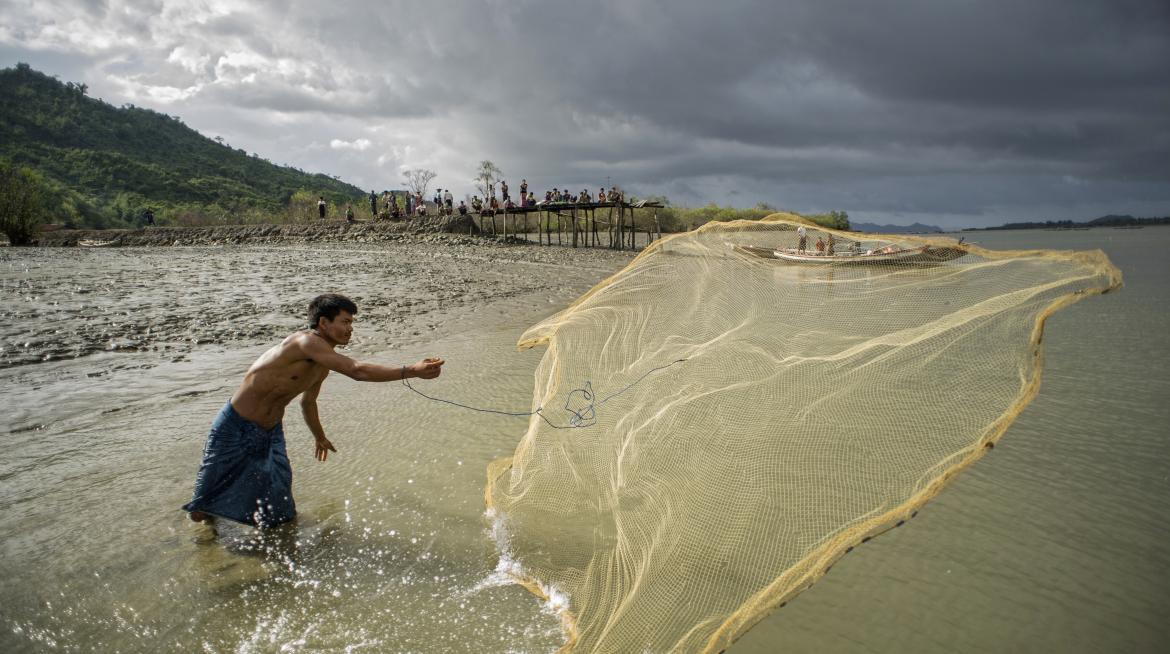
The passing of the Rakhine State Freshwater Fisheries Law was a significant achievement for the Rakhine Fisheries Partnership (RFP), which included the Tat Lan fisheries advisory team from Oxfam and the Network Advisory Group (NAG).
The RFP met with the Rakhine State government several times to assist parliamentarians to understand how communities could share in the management of the fisheries resource. The consultation included analyses of the Union level freshwater fisheries law and comparative fishery laws from Bangladesh, Cambodia, Malaysia, Thailand, and Vietnam.
As the result of the advocacy, the Rakhine State Freshwater Fisheries Law (2014) recognises the rights of communities to establish community fisheries organisations and associations.
Village fishermen know the sustainability of their fisheries is under threat, as each year they catch less large fish. The new law gives community-based fishery groups a voice as they can now advocate for the sustainability of their fisheries resource.
NAG fisheries advisor, Yin Nyein, says small scale fishermen have considerable indigenous knowledge that needs to be respected. “They know the three-month breeding season. They also know where fish breed, and their travelling patterns as they mature. We need the government to recognise and respect this generational knowledge, to protect the future of fisheries and the livelihoods of community fishermen.”
However, the livelihoods of these small-scale fishermen are threatened by the environmental degradation of the mangrove ecosystem and overfishing from commercial operators that are trawling inshore, illegally.
“Currently, there is no policing of commercial fishing within the Rakhine State waterways. The commercial fishers are expected to report how many fish they have caught, but the mechanism is not functioning,” says Yin Nyein, who is working with the RFP to strengthen the voice of fishing communities. “We are advocating for the improvement of fishery policies and further recognition of the rights of small scale fishers within the Union, State and Regional governments.”
The Rakhine State Freshwater Fisheries Law is being upheld as a model of fisheries governance by the Ayeyarwady government, who are amending their existing law, based on the Rakhine State precedence.
The Tat Lan Livelihoods Development Programme in Rakhine State is funded with USD 22 million by LIFT. The programme is to be extended this year.
Article by Jenny Macintyre, Communications Manager, Tat Lan
Photo: U Kaung Thet


